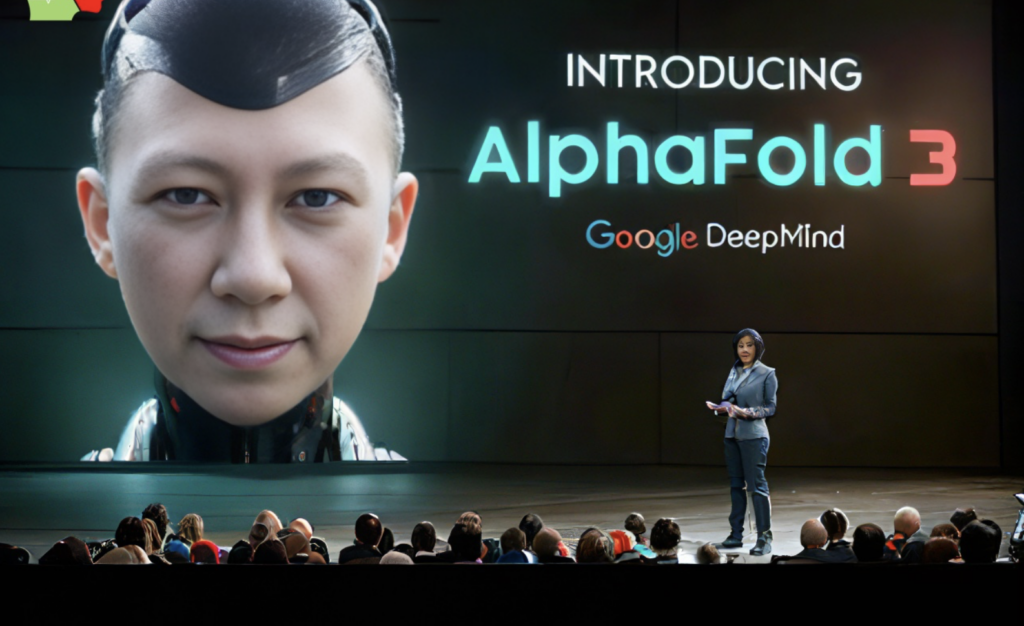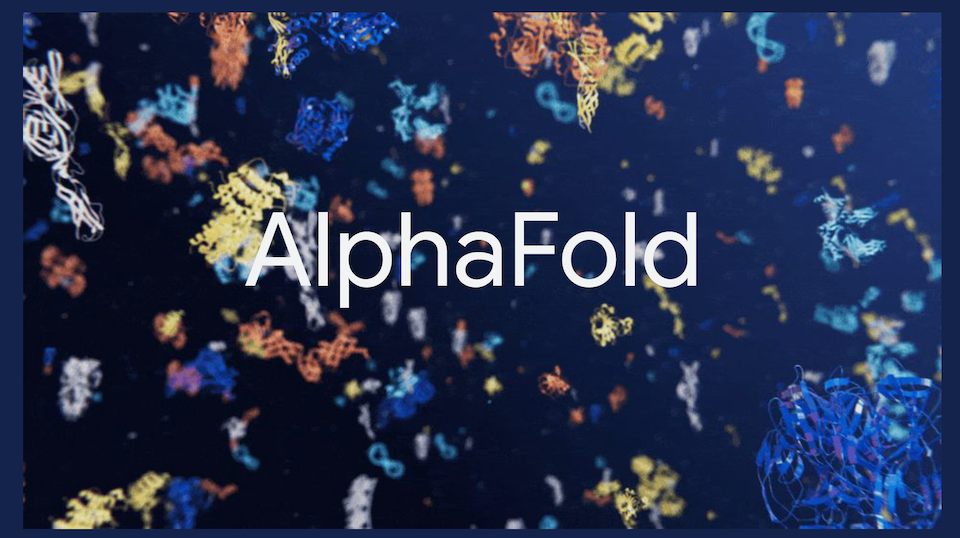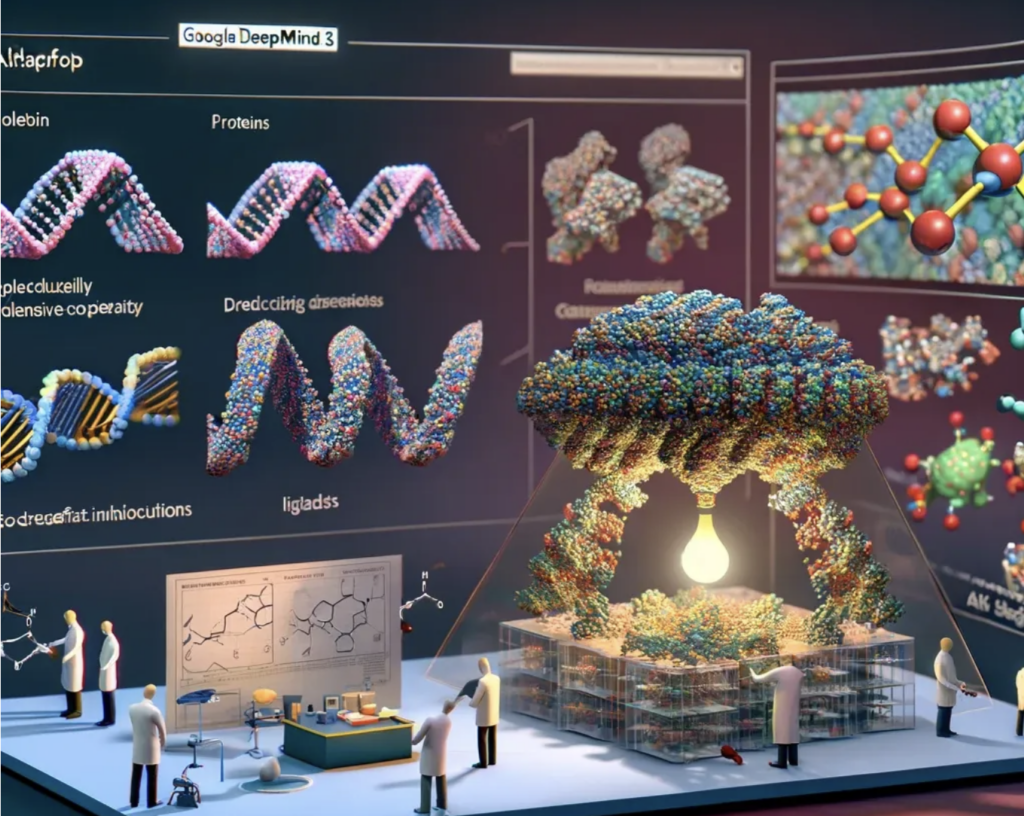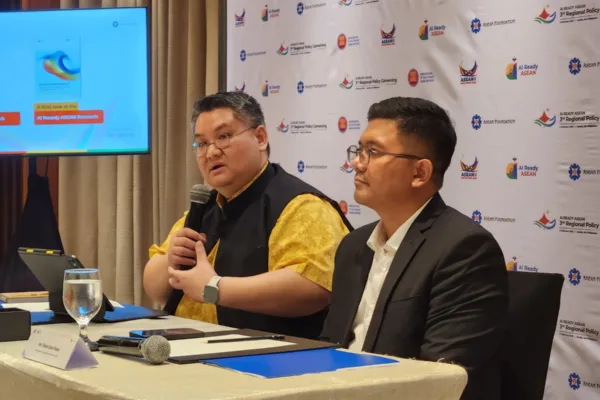Google DeepMind’s AlphaFold, heralded as a revolutionary force in biology, has unveiled its latest iteration, AlphaFold 3, promising to further accelerate scientific discovery.
During a recent media briefing, Dhavanti Hariharan, Senior Product Manager at Google DeepMind, and Lim Jackwee, a researcher from the Agency for Science, Technology and Research (ASTAR), showcased the AI’s enhanced capabilities, emphasizing its potential to transform research across diverse fields, from drug development to agricultural innovation, and crucially, addressing global food security.

A protein shapeshifter that uses AI to predict 3D structure
In her presentation, Hariharan emphasized the significant leap in protein structure prediction accuracy achieved by the AI program, particularly with AlphaFold 2, which reached near-experimental accuracy.
“This represented a major breakthrough after a decade of limited progress in the field,” she noted, attributing this success to the application of machine learning and re-architecting of the system between CASP 13 and CASP 14.
As it is, the AI program, now a Nobel Prize laureate in Chemistry (October 2024), is fundamentally changing how scientists understand proteins, the building blocks of life.
As Hariharan explained, “Realizing the full potential of artificial intelligence, AlphaFold is a testament to the power of AI to accelerate scientific discovery.”
At its core, the AI program acts as a “protein shapeshifter,” using AI to predict the 3D structure of proteins from their amino acid sequences with remarkable accuracy, often rivaling traditional lab experiments. This ability has unlocked a new era of biological understanding.
An indispensable resource for researchers worldwide

The scale of AlphaFold’s impact is staggering. To date, the AI has predicted the structure of over 200 million proteins – nearly all cataloged proteins known to science. This vast dataset, freely available through the AlphaFold Protein Structure Database, has become an indispensable resource for researchers worldwide.
“We’re talking about potentially saving millions of dollars and hundreds of millions of years in research time,” Harihan further stated. “AlphaFold Server, with its ability to predict protein interactions, is further accelerating new research across diverse fields.”
The global adoption of AlphaFold is equally impressive.
Over 2.5 million researchers across 190 countries are utilizing the platform, with the Asia-Pacific region alone boasting over 1 million users, representing more than a third of the global user base. This widespread adoption underscores the technology’s accessibility and transformative potential.
AlphaFold in the Philippines

In the Philippines, over 7,900 users are leveraging AlphaFold’s capabilities — from vaccine design and visualizing protein structures, to interpreting biological data. Researchers at the University of the Philippines (UP) Manila, for instance, use AlphaFold to predict protein structures, which is crucial for their research on vaccine design and evaluation against deadly animal viruses.
One other impactful example is the research at the International Rice Research Institute (IRRI).
According to Harihan, scientists there are now using AlphaFold to understand phosphorylation in rice, a key process controlling how rice plants function and respond to the environment. AlphaFold 3’s ability to directly model phosphorylation provides higher quality data, aiding in the development of resilient rice varieties that can withstand droughts and diseases, contributing significantly to global food security.
“Understanding and mapping rice genomes is crucial for engineering these resilient crops for the future,” Hariharan emphasized, highlighting the technology’s potential to address critical global challenges.
AlphaFold 3 builds upon this foundation, extending its predictive power to include interactions with DNA, RNA, ligands, and ions. This enhanced capability allows researchers to model and analyze complex biological processes with unprecedented precision.
Jackwee, for his part, highlighted the practical implications of this advancement, demonstrating how AlphaFold 3 aids in understanding protein interactions related to Parkinson’s disease. “The 3D visualization of protein complexes allows us to hypothesize about interaction dynamics that were previously impossible to explore,” Jackwee explained.
About DeepMind
DeepMind remains committed to ensuring ethical and accessible deployment of this technology. Extensive consultations were conducted to address potential risks, and the AlphaFold Database remains freely available, empowering researchers worldwide.
In 2016, DeepMind gained widespread recognition for its AlphaGo program, which defeated a world champion Go player — then considered a landmark achievement in AI. AlphaFold, its AI system for protein structure prediction, has also revolutionized biology, earning significant scientific acclaim, including a Nobel Prize.
DeepMind is also developing advanced AI models like Gemini, which are designed to be highly capable and general-purpose.
Additionally, the leading artificial intelligence (AI) research laboratory prioritizes user accessibility through comprehensive educational guides, direct user support, and workshops to train trainers, ensuring widespread adoption.
“It’s incredible to see researchers around the world using AlphaFold to tackle some of the world’s most pressing challenges,” Hariharan concluded.
As AlphaFold continues to evolve, its impact on scientific research and its potential to address global challenges, particularly in food security, are undeniable, ushering in a new era of AI-driven biological discovery.







